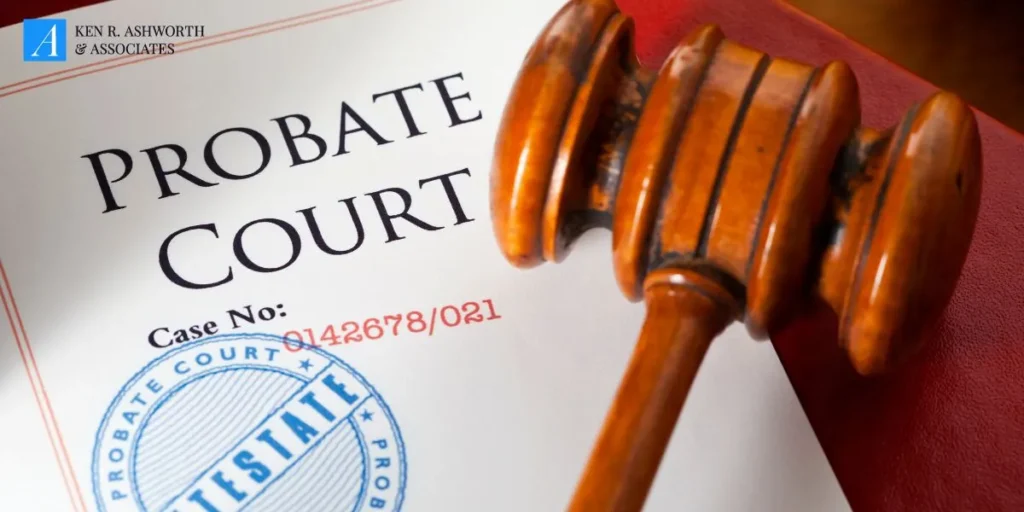Probate is the legal process that takes place after someone passes away, involving the validation of a will, appointment of an executor, and distribution of the estate. For families in Nevada, and specifically in Las Vegas, one of the most pressing questions is, “What is the cost of probate in Las Vegas?” While the answer depends on the size of the estate, attorney fees, and court requirements, having a clear understanding of typical expenses can help families prepare. This guide explores the different costs of probate in Las Vegas and factors that influence them.
Understanding the Basics of Probate Costs
When a person dies in Las Vegas, their estate may need to go through probate, unless assets are held in a trust or pass automatically to beneficiaries. Probate involves filing documents with the Clark County Probate Court, notifying heirs and creditors, and distributing property. Each of these steps generates costs. These expenses may include court filing fees, attorney fees, executor compensation, appraisal costs, and other administrative charges. Since Nevada has its own probate statutes, the cost structure may differ from other states. Families should be aware that probate costs are not uniform but instead vary depending on the size and complexity of the estate being administered.
Court Filing Fees in Las Vegas Probate Cases
One unavoidable cost of probate in Las Vegas is the court filing fee. When an executor or personal representative files a petition to begin probate in Clark County, the court charges a fee based on the case type. These fees usually cover the initial petition, notices, and other required filings throughout the probate process. While the fees themselves are not excessive compared to attorney costs, they are still an important part of the overall expense. Filing fees can increase if multiple motions or supplemental filings are required. Families should budget for these costs at the start to avoid surprises later in the process.
Attorney Fees for Probate in Las Vegas
Attorney fees are often the largest portion of the cost of probate in Las Vegas. Many families choose to work with an experienced probate attorney because Nevada probate law can be complex, and even simple estates require careful paperwork. In Las Vegas, probate attorneys typically charge fees based on a percentage of the estate’s value or on an hourly basis. Large estates with real property, multiple bank accounts, and investment assets tend to incur higher fees because they require more legal work. Having professional guidance helps ensure that probate is handled correctly, but families should request a written fee agreement upfront to understand how costs will be calculated.
Executor and Administrator Compensation
Executors, also known as personal representatives, are entitled to compensation for the time and effort spent managing an estate. In Las Vegas, executor fees are generally set by Nevada law as a percentage of the estate’s value, though courts may approve additional compensation if extraordinary services are provided. While some family members serving as executors choose to waive this fee, others rightfully claim it, especially if the estate involves significant responsibilities such as handling real estate sales or negotiating creditor claims. This cost is charged to the estate itself, which means it reduces the amount distributed to beneficiaries. Executors should keep detailed records of all tasks completed to justify their compensation in probate court.
Appraisal and Valuation Costs
Another expense families may encounter in Las Vegas probate is appraisal and valuation costs. Many estates include property such as homes, vehicles, jewelry, or collectibles that require a professional valuation before being distributed or sold. Nevada probate courts often require appraisals to establish fair market value, ensuring assets are divided equitably among heirs. Licensed appraisers charge fees based on the type and number of assets being evaluated. For example, a home appraisal may cost several hundred dollars, while specialized appraisals for business interests or rare collectibles can be higher. These costs are necessary to provide transparency and fairness during probate proceedings.
Publication and Notification Costs
Probate in Las Vegas requires that creditors and interested parties are formally notified of the process. One way this is accomplished is through publishing notices in local newspapers, as required by Nevada law. These publication costs are another expense that must be paid by the estate. The price of publishing probate notices varies depending on the length of the notice and the publication used, but it is typically a few hundred dollars. While it may seem like a small portion of the total probate cost, it is a mandatory requirement, and failure to comply can delay the entire process. Executors should factor these publication fees into the estate’s budget.
How Estate Size Affects Probate Costs
One of the biggest factors influencing the cost of probate in Las Vegas is the size of the estate. Larger estates require more paperwork, court oversight, and attorney involvement, which increases the total cost. For smaller estates, Nevada offers simplified probate procedures that reduce expenses significantly. If the estate is valued below a certain threshold, heirs may be able to use an affidavit of entitlement or summary administration, both of which cost less than formal probate. However, when estates exceed these thresholds, full probate is required, and costs rise accordingly. Families should understand how the value of the estate impacts not only fees but also the length of time needed to settle matters in court.
Additional Costs That May Arise
Beyond standard fees, families in Las Vegas may face additional probate-related costs depending on circumstances. For instance, if the estate includes debts, settling with creditors can involve legal costs or negotiation fees. If real estate is part of the estate, there may be property maintenance or realtor expenses until the property is sold. Estates with disputes among heirs may face litigation costs, which significantly increase overall expenses. In some cases, accountants or financial advisors are needed to handle tax matters, adding another layer of cost. While these expenses do not occur in every probate case, they should be considered when estimating the total financial burden of probate in Las Vegas.
Reducing the Cost of Probate in Las Vegas
Families often ask how to lower the cost of probate in Las Vegas, and there are several strategies. One of the most effective methods is advance estate planning. Establishing a living trust allows assets to bypass probate entirely, avoiding many of the fees and delays associated with court involvement. For those already facing probate, choosing a simplified process when eligible can significantly reduce costs. Executors who stay organized and work closely with a probate attorney also help prevent unnecessary expenses by avoiding mistakes and delays. Finally, heirs can save money by settling disputes outside of court, as litigation is one of the costliest aspects of probate.
Conclusion
The cost of probate in Las Vegas depends on several factors, including attorney fees, court filing fees, executor compensation, and the overall size of the estate. While some of these costs are unavoidable, others can be reduced through proper planning and efficient estate administration. Families should recognize that probate is not only a financial process but also an emotional one, and preparing in advance can ease the burden. By understanding potential expenses and seeking professional guidance, families in Las Vegas can navigate costs of probate in Las Vegas fewer surprises and ensure the estate is settled fairly and efficiently. read more



